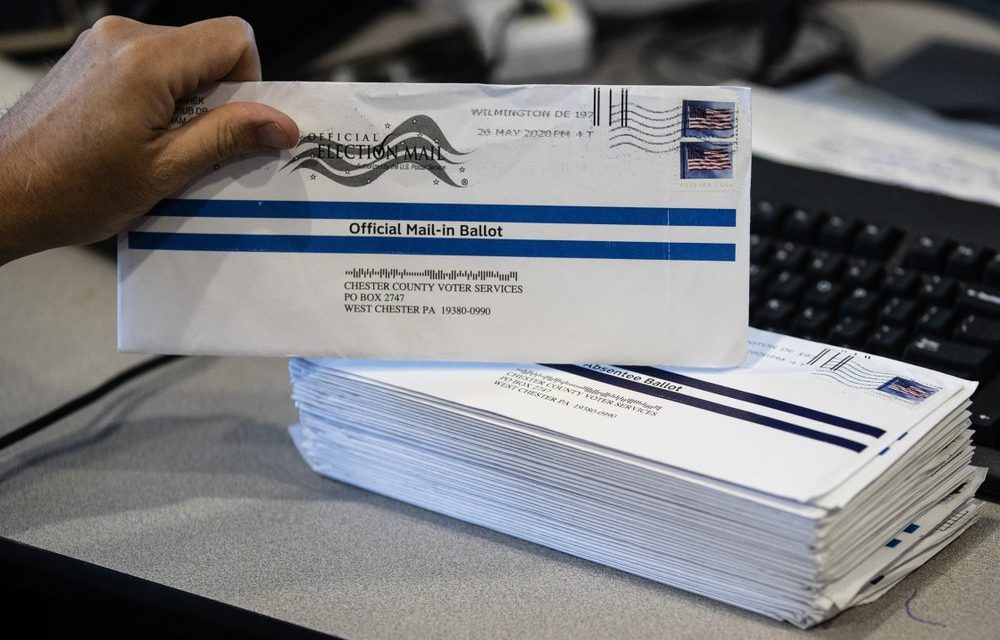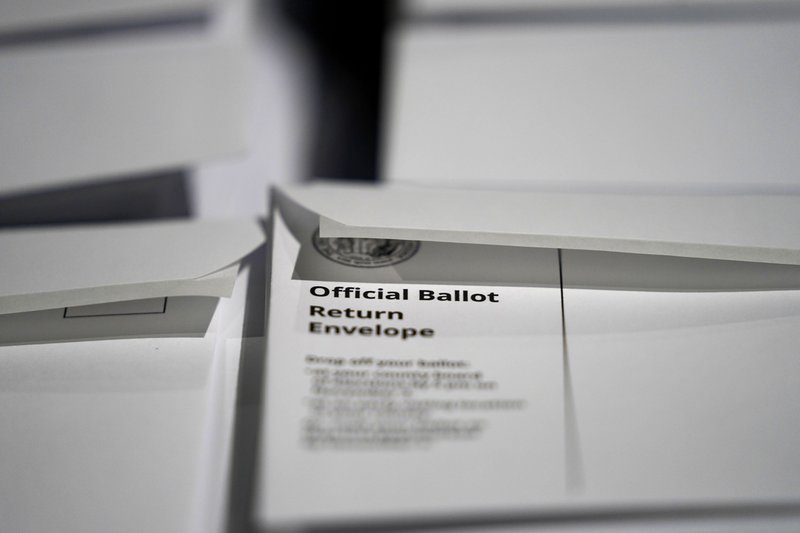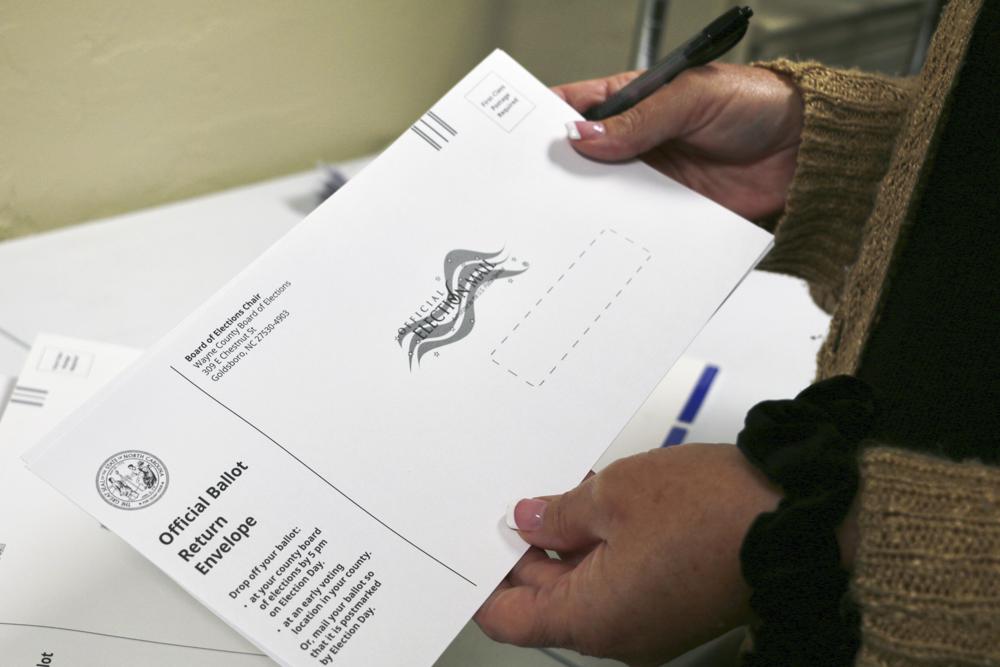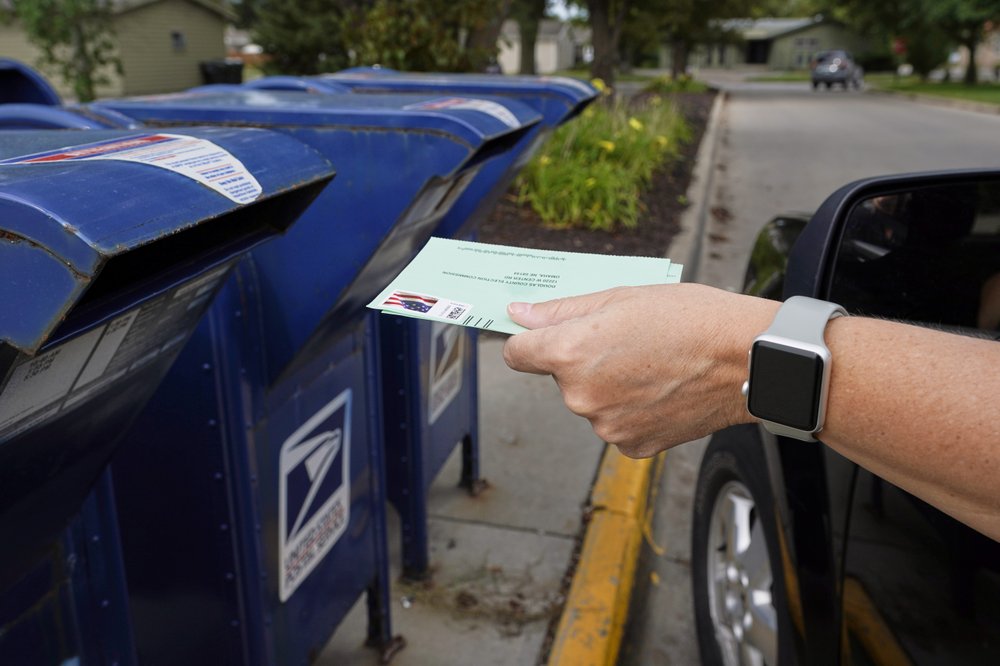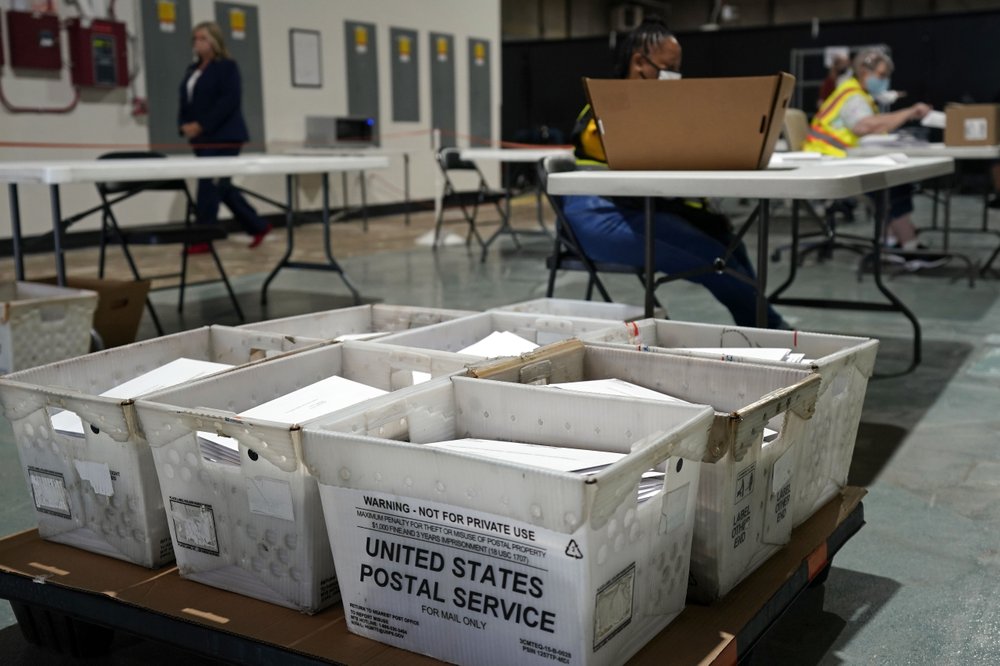Written by CHRISTINE FERNANDO, EMILY WAGSTER PETTUS and JACK DURA
Republicans are challenging extended mail ballot deadlines in at least two states in a legal maneuver that could have widespread implications for mail voting ahead of this year’s presidential election.
A lawsuit filed last week in Mississippi follows a similar one last year in North Dakota, both brought in heavily Republican states before conservative federal courts. Democratic and voting rights groups are concerned about the potential impact beyond those two states if a judge rules that deadlines for receiving mailed ballots that stretch past Election Day violate federal law.
They say it’s possible such a decision would lead to a nationwide injunction similar to one last year when a Texas judge temporarily paused the FDA’s approval of the abortion pill mifepristone.
“This effort risks disenfranchising Mississippi voters, but we don’t want that to also be precedent for other states,” Abhi Rahman, communications director of the Democratic Legislative Campaign Committee, said in response to the most recent lawsuit.
Mississippi and North Dakota are among 19 states that accept late-arriving mailed ballots as long as they are postmarked on or before Election Day, according to the National Conference of State Legislatures. That includes political swing states such as Nevada and North Carolina. Some, including Colorado, Oregon and Utah, rely heavily on mail voting.
Former President Donald Trump has long railed against the use of mail voting, in particular when many states expanded its use during the COVID-19 pandemic in 2020, when he lost his reelection bid to Democrat Joe Biden. He has falsely claimed that changing vote tallies after Election Day are an indication of widespread fraud. And in the wake of his loss, several Republican-controlled states moved to tighten rules around mail voting.
The Republican National Committee, the Mississippi Republican Party, a member of the state Republican Executive Committee and an election commissioner in one county filed a federal lawsuit on Friday against Secretary of State Michael Watson and six local election officials.
The suit challenges a Mississippi law that says absentee ballots in presidential elections will be counted if they are postmarked by Election Day and received within five days. It argues that Mississippi improperly extends the federal election beyond the election date set by Congress and that, as a result, “timely, valid ballots are diluted by untimely, invalid ballots.”
“Federal law is very clear – Election Day is the Tuesday after the first Monday in November,” RNC Chairwoman Ronna McDaniel said in a statement announcing the lawsuit. “However, some states accept and count ballots days and days after Election Day, and we believe that practice is wrong.”
RNC spokesperson Gates McGavick said the group hopes to obtain a judicial precedent before November’s presidential election that state deadlines allowing ballots to be received after Election Day violate federal law.
“This case could have major ramifications in future elections — not just in Mississippi but across the country,” he said.
Democratic state Rep. Bryant Clark called the Mississippi lawsuit “another effort to try to stifle votes and stop the votes of a certain segment of the population.” He said the suit may also lead to similar efforts across the country.
Thessalia Merivaki, a political science professor at Mississippi State University, said the state’s mail voting process is already difficult to navigate and that eliminating the five-day window would “unfairly punish” voters.
In North Dakota, a similar federal lawsuit against the state election director was filed by the conservative Public Interest Legal Foundation on behalf of a county auditor, Mark Splonskowski, who cited what he said is a conflict between state and federal law. A court is expected to decide soon whether he has standing to bring the lawsuit.
Foundation spokesperson Lauren Bowman said while the lawsuit deals with North Dakota’s law, a ruling that finds extended ballot deadlines violate federal law would affect other states with similar policies.
State Election Director Erika White has asked the case to be dismissed. Her attorneys characterized the county auditor’s lawsuit as “a bid to overthrow longstanding North Dakota law and rewrite it according to his own preference.” Attorneys with the U.S. Justice Department’s Civil Rights Division filed a statement of interest in the case defending the existing state law, saying it was consistent with federal law and ensures that military and overseas ballots would be counted.
North Dakota Republican Secretary of State Michael Howe declined to comment, citing the pending litigation.
Republican state Sen. Kristin Roers said the lawsuit could have unintended consequences, such as for military voters, and would effectively penalize voters who live in areas with slow postal service.
“I don’t see that this is something that is a huge, glaring issue in our election system,” she said.
Richard L. Hasen, a University of California, Los Angeles law professor and election law expert, criticized the legal basis of the lawsuits. In the Mississippi case, he said the RNC appears to be trying to gain a political advantage because it “believes late-arriving mail ballots are more likely to favor Democrats.”
He noted that the 5th U.S. Circuit Court of Appeals, which includes Mississippi, has historically been quite conservative “and not protective of voting rights.”
“It would be a far reach for a challenge to Mississippi law to lead to a national injunction against this,” he said. “But it’s possible.”
Photo via AP Photo/Matt Rourke.

